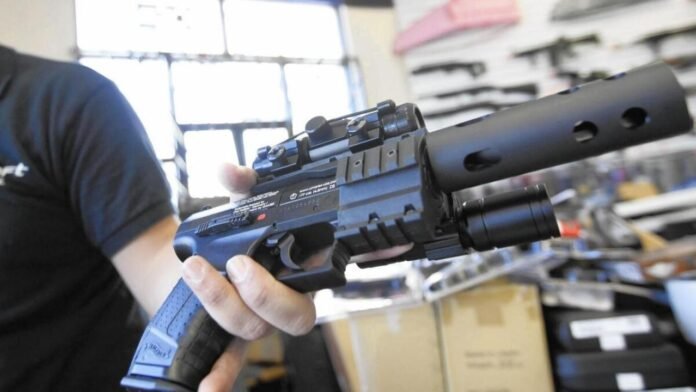In 2023, retailers sold more than 12 million BB and pellet guns in the United States. Most of these guns have weights, markings, and finishes similar to real firearms. However, such look-alike replica guns do not have any clear requirements in federal law regarding the safe sale of these weapons. Most states allow adult and minor purchases without further restrictions and background checks.
Replica Guns Firearms Claiming Lives
These replicas or imitation guns are non-deadly, but in recent years, their possession has resulted in death, certainly not their own. In 2023, police shot and killed a total of twelve people who brandished replica guns, including three individuals under 18 years of age. Since 2014, statistics show that no fewer than 320 cases of this nature have been reported. Nineteen of those victims were minors.
Every year, as more such guns are rolled out into circulation, authorities find themselves stuck against the wall on how to address safety issues.
Gaps in Federal Law and Regulation
Unquestionably, BB and Pellet guns do not follow the same ruling regarding their regulation in the federal statute with airsoft guns, where they must have a bright colored front tip or marking to differentiate them from a real gun. These non-powder guns can surely fall under a loophole, as they can be produced without clear markings indicating they are non-lethal. Some manufacturers, Umarex USA, for example, have exploited this gap to the fullest by producing air guns, which look like real guns.
Realism That Can Kill
Consumers become very excited while looking at these products, and the comments are always how real it seems to a real gun, and the reviews about any of these products are always concerning their longing. A Umarex Glock airsoft gun reviewer said this model “has a good working mechanism and is a replica of the real one.” The copies appear and weigh so realistically that it becomes hard for law enforcement agencies to tell the difference in rapid-fire situations along the lines of duty.
Police Response to Replica Guns
Whenever there is a reasonable belief of an imminent or otherwise deadly threat of violence against the police or manhandling of others, the police have the right to use lethal force and shoot the suspect. Looking at some of the problems, it’s very easy to picture something that would probably not play out well; seeing that some dummy weapons resemble ‘real’ firearms, an officer may act based on sizing up a situation and end up pulling out their gun on a person not posing any real danger. There have been numerous tragedies that can illustrate this point, and they mostly happened in 2023, some of them being the shooting of minors with replica guns by the police in the states of California, Wisconsin, and New York.
Manufacturers’ Responsibility and Legal Challenges
Some lawmakers and activists have consistently maintained that manufacturers are somewhat responsible for these kinds of deaths, claiming that they usually import such guns into the country while disguising their true nature as real weapons. It appears impossible to successfully convince those engaged in such business to abandon marketing beautified replicas of guns.
The Patchwork of State Regulations
On the one hand, many, particularly in the United States, have regulations on the sale and possession of non-powder guns; still, quite a few individuals notice the signature holes within the framework of the laws, and enforcement is still an issue. Some online markets do not allow the sale of these guns in states with more stringent regulations, but, unfortunately, this often leads to the procurement and shipment of these items across state borders.
Stalemate in Federal Action
Reclamation of the federal legislation regarding BB and pellet guns has practically hit a dead end. Some lawmakers have attempted to pass laws prohibiting or restricting the sales of more or less realistic toy guns, but they found these bills too controversial to embrace. However, those advocating for reform still face strict regulations when producing and selling BB and pellet guns. This has led to various states enacting laws that are not very coherent.
Attempts to establish safety standards and to distinguish these guns from real ones still show no progress, and lawmakers need to revise many of the gun laws regulating their control and sale.


